Health Bulletin 20/ April/ 2024
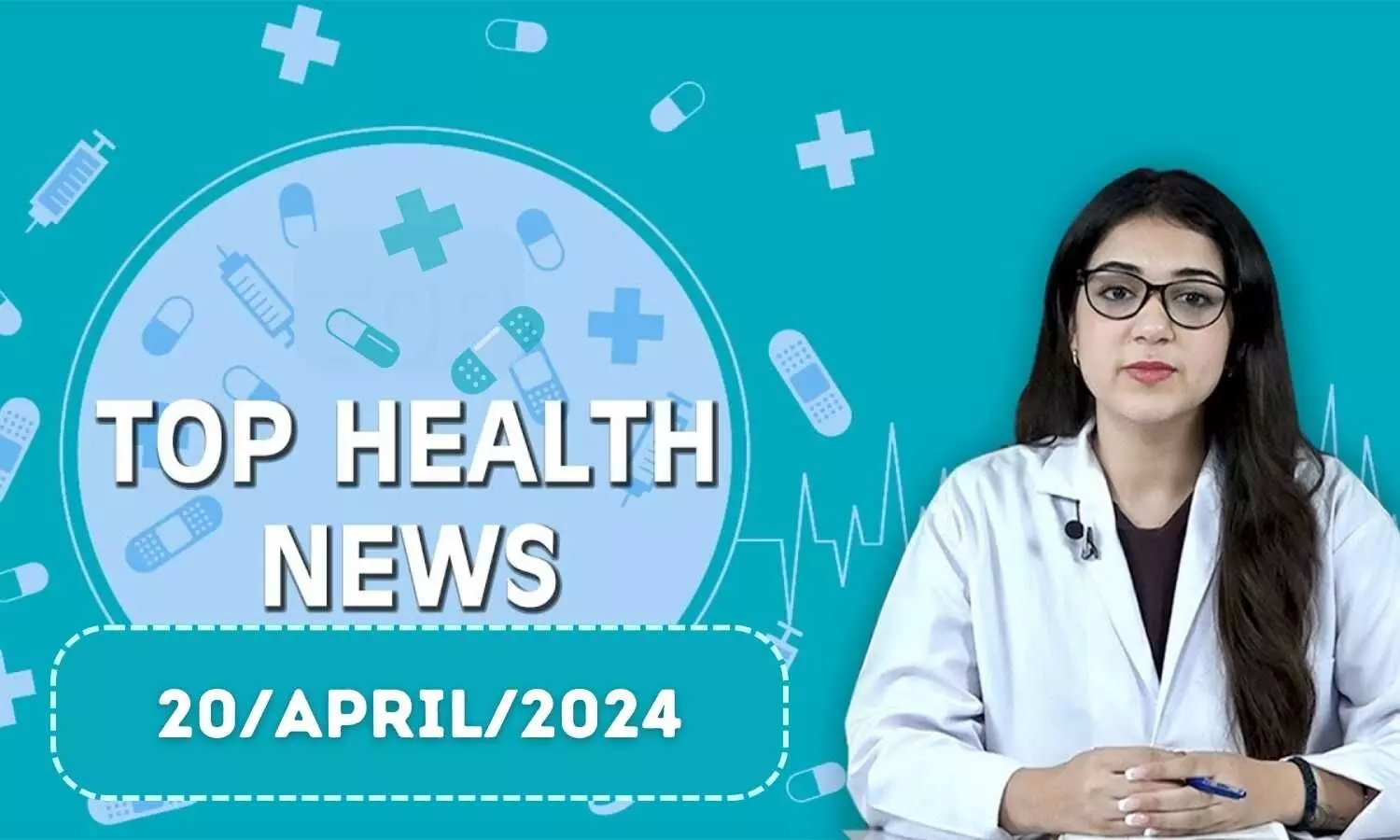
Here are the top health news for the day:
Powered by WPeMatico

Here are the top health news for the day:
Powered by WPeMatico

Yamunanagar: In a raid at a private clinic in the city, a team of the state health department caught a doctor who was allegedly selling allopathic medicine that guaranteed the birth of a baby boy.
After nabbing the accused red-handed, the health authorities handed him to the police following which he was arrested under Section 420 (cheating) of the Indian Penal Code (IPC); 12 and 21 of the NDPS Act; 15 (2) and 15 (3) of the Indian Medical Council Act; 34 (1) and 34 (2) of the National Medical Commission Act and relevant Sections of the PC PNDT Act.
Around 13 different types of allopathic medications were discovered to be expired and stored within the clinic’s premises. The clinic was located in Shastri Colony near Fountain Chowk in Yamunanagar City.
Also read- Amritsar Doctor Arrested In Case Of Cheating, Forgery For Death Of Patient In 2018
According to the health department officials, the medicines were unfit for human consumption. It was alleged that the accused sold the medicine to the woman who is reportedly a decoy promising that she will give birth to a male child after the course of this medication.
The incident came to light after a team of the health department including Dr Vipin Gondwal, deputy civil surgeon (PNDT) and Dr Shalini Saini, medical officer of Mukand Lal District Civil Hospital, Yamunanagar carried out a plan to nab the doctor acting on a tip-off.
They sent a decoy woman to the doctor under the pretext that she required medicine to give birth to a boy. When the woman met with the doctor, she gave him Rs 1000 for the medicines.
“The doctor took two notes of Rs 500 from the decoy after giving her medicines. During the raid, many types of allopathic drugs were also found stocked in clinic premises. The doctor was asked to produce a valid drug license or degree which allowed him to stock medicines and practice medicine using allopathic drugs. The doctor also failed to produce any purchase bills of allopathic drugs and other drugs possessed by him. No entry of decoy was made in the OPD register”, said Dr Vipin Gondwal in his complaint.
Yamunanagar City SHO inspector Jagdish Chander told TOI, “The doctor was produced before a duty magistrate on Wednesday, which sent him on a four-day police remand. A police team took the doctor to Chamba in Himachal Pradesh and Moga in Punjab for recovery of some items, which cannot be disclosed yet due to ongoing investigation.”
Further investigation is underway.
Also read- Illegal Sex Determination Racket Busted In Gujarat, Doctor Arrested
Powered by WPeMatico
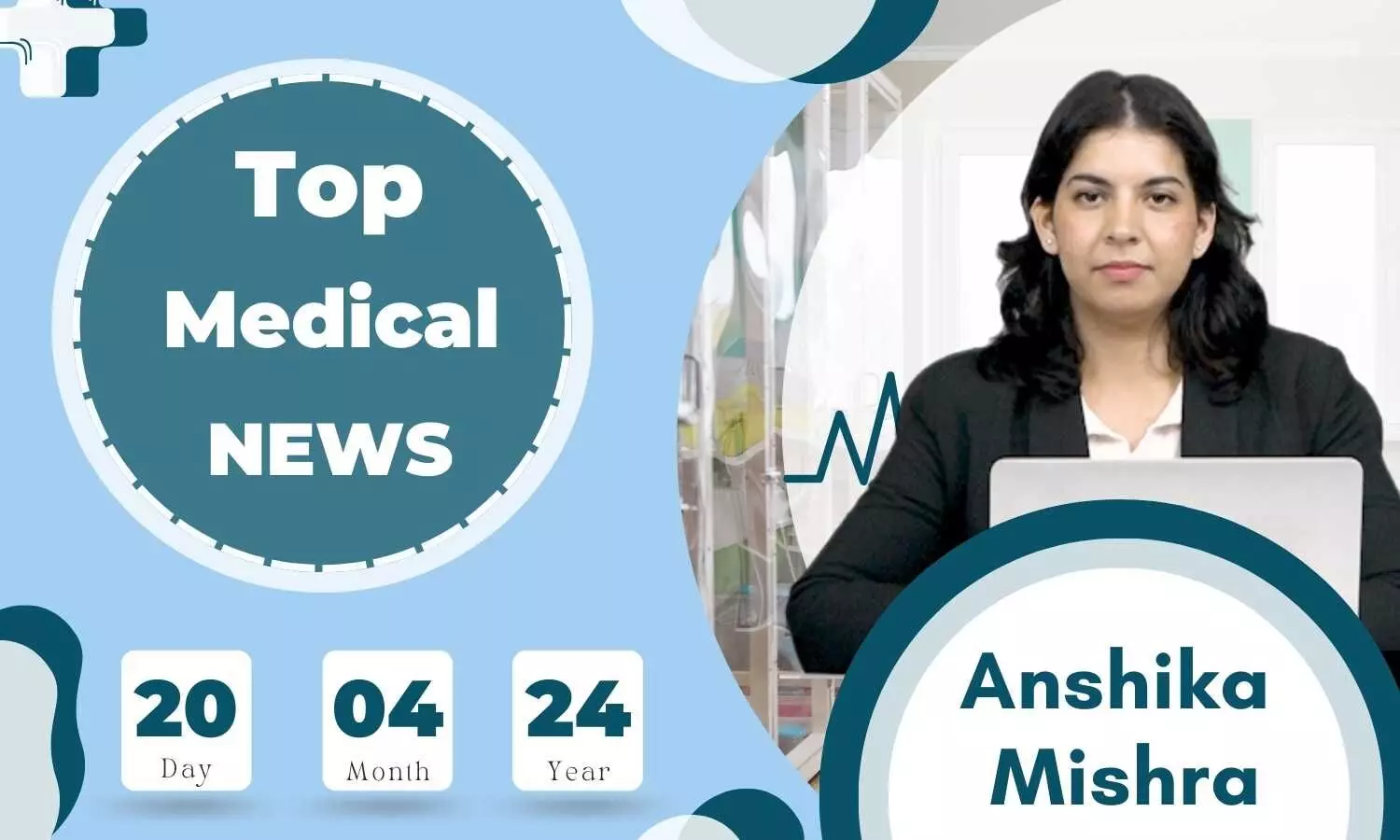
Here are the top medical news for the day:
Powered by WPeMatico

Pune: The Director of Medical Education and Research (DMER), Maharashtra has sought a fresh report from the BJ Medical College (BJMC) and Sassoon General Hospital’s internal anti-ragging committee regarding two instances of alleged ragging at the institute.
This new development was confirmed by DMER Dr. Dilim Mhaisekar, who told the TOI, “We have sought a detailed report from the college’s internal anti-ragging committee regarding the two alleged incidents. According to the protocol, the college must first probe the matter internally and send the report to us.”
“The college authorities had sent us a report on Monday in connection with one of the incidents but it was not enough. We have raised many queries in the report. There are about 12 candidates involved in the case. We have asked for recorded statements from all these candidates. The college asked us for 15 days to file a fresh report but we have asked them to submit their report within a week,” Dr. Mhaisekar told the Times of India.
“Regarding the second incident, the college’s internal anti-ragging committee has started looking into it,” he added.
Although initially, the Dean of the Institute Dr. Vinayak Kale did not comment on the matter, his text sent to TOI on Wednesday stated, “No ragging at BJMC, Pune. Do not spread wrong information. All media persons. Do not malign the well-built image of the reputed institute.”
Medical Dialogues had recently reported that authorities of B J Medical College (BJMC) and Sassoon General Hospital (SGH) initiated a probe into the ragging complaint filed by a 24-year-old junior resident doctor. Allegedly, the Junior Resident Doctor, studying in her first year of Doctor of Medicine course in Anaesthesia, was ragged and bullied by seniors while working in the department.
Aiming to prevent ragging in medical colleges across India, the National Medical Commission (NMC) had earlier spelt out the regulations titled “Prevention and Prohibition of Ragging in Medical Colleges and Institutions Regulations, 2021”. It also specified the disciplinary actions to be taken while dealing with incidents of ragging.
NMC, the apex medical education regulatory body mentioned the measures to prohibit and prevent ragging by institutions including the duties and responsibilities of the institutes, measures required to be taken by the medical colleges, issue of migration, transfer or conduct certificates, measures to encourage healthy interaction between freshers and seniors, Sensitisation of institutional employees and staff towards ragging, Institutional committees and related measures, Anti-ragging squad, Student Affairs or Hostel Committee, duties of the universities, etc.
Also Read: BJ Medical College Anaesthesia Medico alleges ragging, probe launched
Powered by WPeMatico
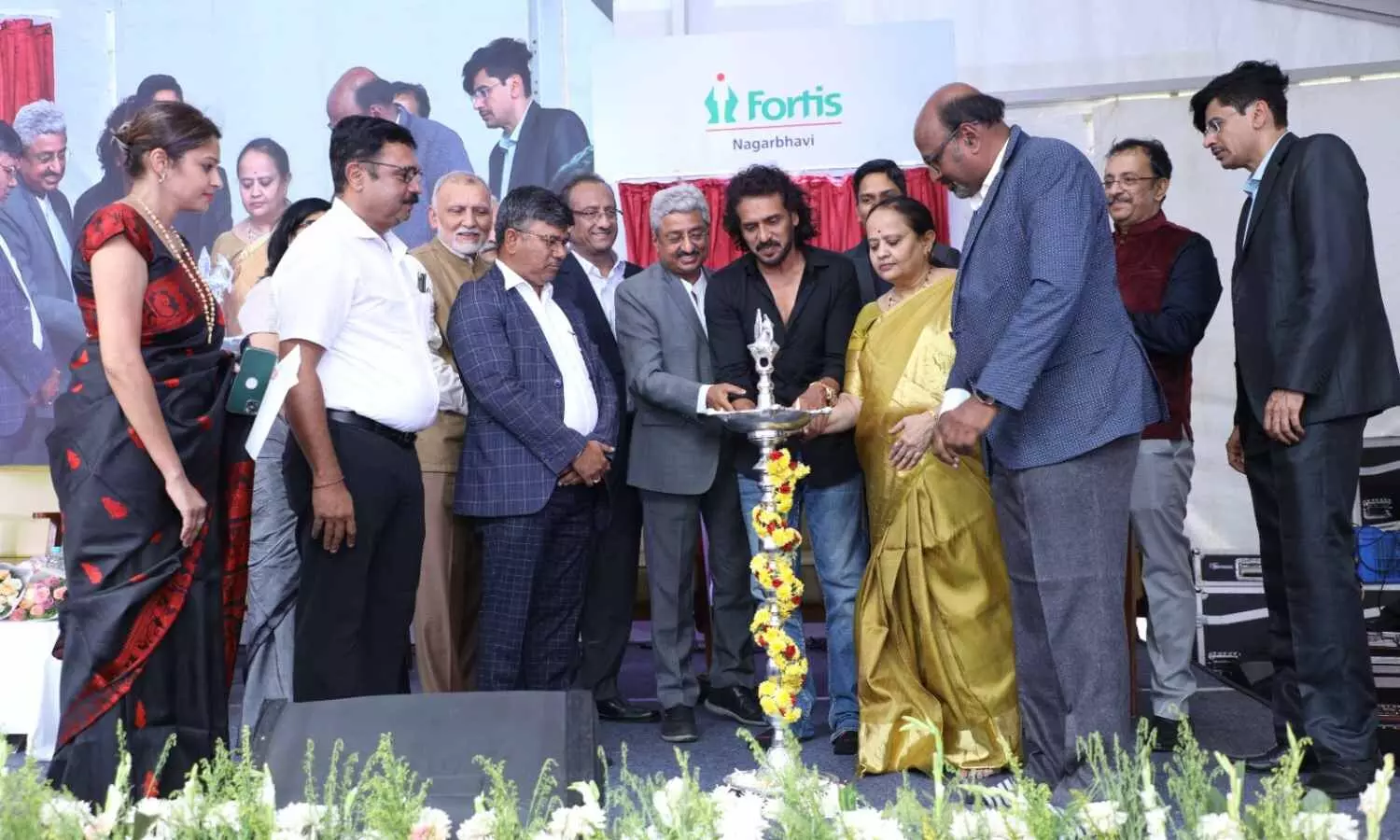
Bengaluru: Keeping its commitment to the core ethos of patient-centricity, Fortis Healthcare yesterday launched a state-of-the-art, multi-speciality hospital at Nagarbhavi, Bengaluru.
Located in West Bengaluru, the new upgraded facility was inaugurated by Shri Upendra Rao, renowned actor and filmmaker; Shri Munirathna, MLA of Rajarajeshwari Nagar; Dr Rajani M, Joint Director of Health & Family Welfare Services; and Dr Ravindranath M, District Health & Family Welfare Officer in the presence of Mr Anil Vinayak, Group COO, Fortis Healthcare Ltd, Dr Vivek Jawali, Chairman- Cardiac Sciences, Fortis Hospitals, Bengaluru other Clinicians and Senior Dignitaries at Fortis Healthcare including Dr Thejaswini Parthasarathy, Facility Director, Fortis Hospital, Nagarbhavi.
With a commitment to providing state-of-the-art tertiary care and a comprehensive approach to managing complex medical cases, the newly launched healthcare facility in the region aims to establish itself as the premier hospital in the area.
Also Read:Fortis Hospital Mulund unveils The First Movement Disorder and DBS Clinic
Reinforced by an expanded infrastructure and a comprehensive range of services, including 24/7 emergency and trauma care; ICU & Critical Care; Fortis Heart & Vascular Centre; Fortis Cancer Institute; Woman & Childcare; and the Institute of Gastrointestinal Sciences; the hospital is dedicated to meeting the diverse healthcare needs of the community.
With a legacy of 35 years and a team of over 100 expert clinicians, each of these key specialities will now benefit from the expertise of senior clinicians such as Dr Vivek Jawali, Chairman of Cardiac Sciences at Fortis Hospitals Bengaluru, Dr Mohan Keshavmurthy, Senior Director of Uro-oncology at Fortis Hospitals Bengaluru, and Dr Sandeep Nayak, Senior Director of Surgical Oncology at Fortis Hospitals Bengaluru, thereby maintaining the hospital’s commitment to serving the residents of Nagarbhavi and its neighbourhood. The facility currently offers 80 beds, with plans to expand to 100 beds to accommodate a growing patient base.
Commending Fortis Healthcare for the launch of the tertiary care facility, at Nagarbhavi, Bengaluru, Shri Upendra, renowned actor and filmmaker, said, “It’s truly an honour to be part of this momentous occasion. The launch of this multi-speciality hospital is a significant step toward ensuring top-quality healthcare accessibility. I applaud Fortis Hospitals for their dedication to expanding treatment facilities and delivering exemplary care.”
Shri Munirathna, Member of the Legislative Assembly (MLA) of Rajarajeshwari Nagar, said, “I am delighted to see Fortis Healthcare bringing world-class healthcare services right to our doorstep. Today, more than ever, we are deeply conscious of our health and the importance of making informed choices for our long-term well-being. The new tertiary care hospital at Nagarbhavi, equipped with advanced technology and offering a multi-specialty approach, ensures that high-quality medical care is readily accessible to our community.”
Mr. Anil Vinayak, Group COO, Fortis Healthcare Ltd, said, “Fortis has always been at the forefront of providing cutting-edge medical services. With the launch of this hospital, we continue our legacy of delivering high-end care to our patients, setting new a benchmark in healthcare excellence. This launch marks a significant milestone in our continued expansion efforts, underscoring our dedication to innovation and our commitment to delivering the finest care to our patients.”
Mr Akshay Oleti, Business Head, Fortis Hospitals Bengaluru, said, “We take immense pride in the launch of our multi-speciality hospital at Nagarbhavi, Bengaluru. Now a large section of people seeking healthcare services will benefit from this addition. It signifies our commitment to providing our patients with informed choices and the best cutting-edge healthcare facilities that the world has to offer. At Fortis, we are dedicated to ensuring that our patients receive quality care and attention at every step of their journey.”
Powered by WPeMatico
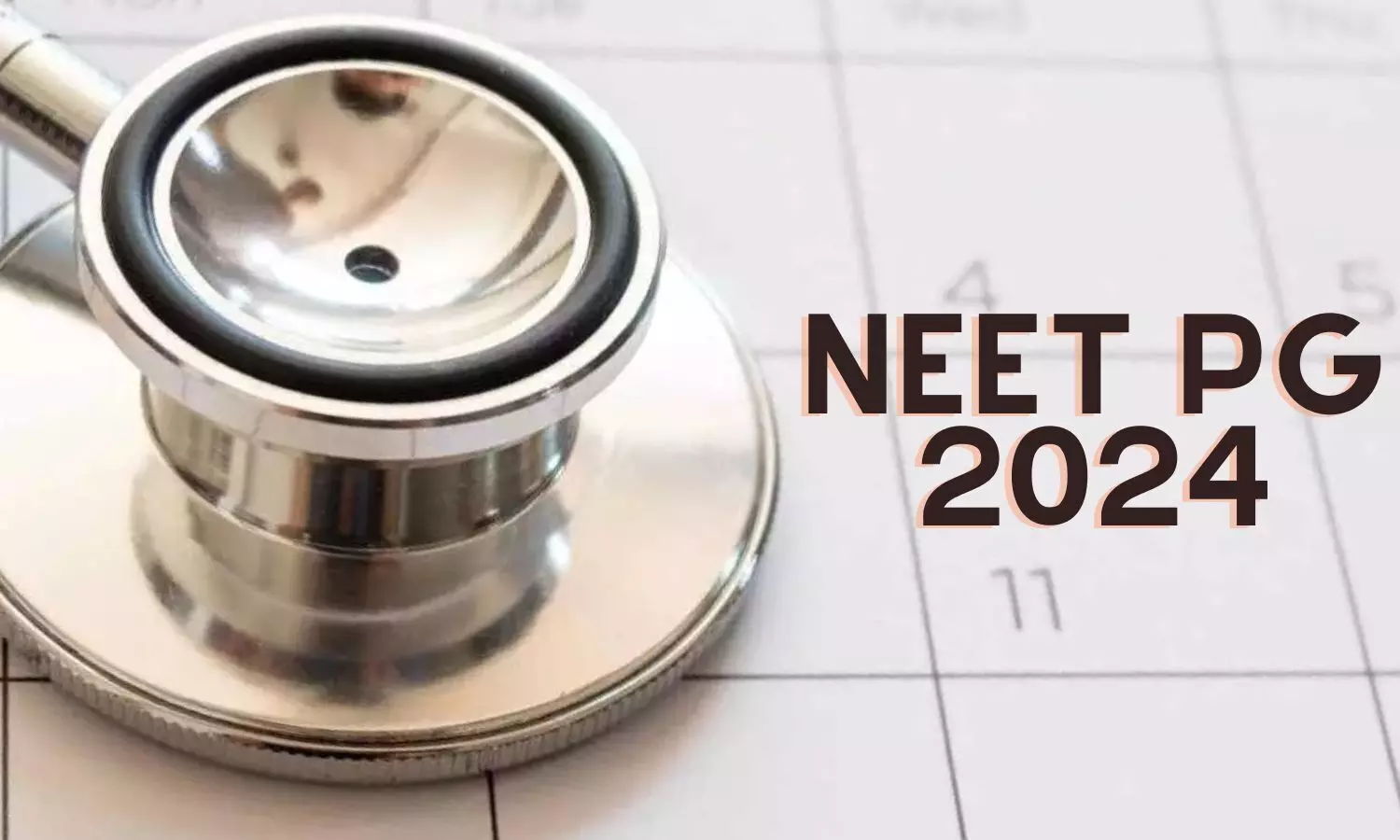
New Delhi- For the first time, the National Board of Examination in Medical Sciences (NBEMS) has implemented the ‘first come, first serve’ system for the National Eligibility cum Entrance Test-Post Graduate (NEET PG) 2024 exam centre selection this year.
This move has reportedly resulted in no exam centres being left in Bengaluru for thousands of NEET PG candidates, as per a recent Hindu report.
Also Read: NEET PG 2024 Registrations Begin, APPLY NOW
In the NEET PG 2024 information bulletin, the NBE notified,
“At the time of online submission of application form, the candidate will be required to choose the city in which he/she wants to take the test. The choice of city will depend on the availability of the test centres in a particular city and the allotment shall be done on a first come first serve basis”.
“The test city can be selected from available choices on a first come first serve basis. While the city will be chosen by the candidate himself/herself at the time of online submission of application form, allotment of test centre/venue in the chosen city shall be done by NBEMS”, it further added.
Due to this system, within a few hours, the candidates selected all the available seats in the examination centres of Bengaluru. For this year’s NEET PG exam, the exam centres were allotted to Bengaluru, Davanagere and Belagavi in Karnataka taking a total of 31 exam centres to Bengaluru.
Speaking to The Hindu, Sujata Rathod, Director of Medical Directorate-Karnataka, said, “Due to the first come, first serve system, the seats in all the examination centres in Bengaluru are full. A candidate from any State or city of the country can choose the centre of any other city. It is imperative that candidates choose examination centres in Belagavi, Davangere, or other States, apart from Bengaluru”.
NEET PG 2024 exam is going to be conducted on June 23 on a computer-based platform at various exam centres across the country. The registration process is ongoing and will remain valid till 11:55 pm on 6 May 2024 till 11:55 PM.
Powered by WPeMatico
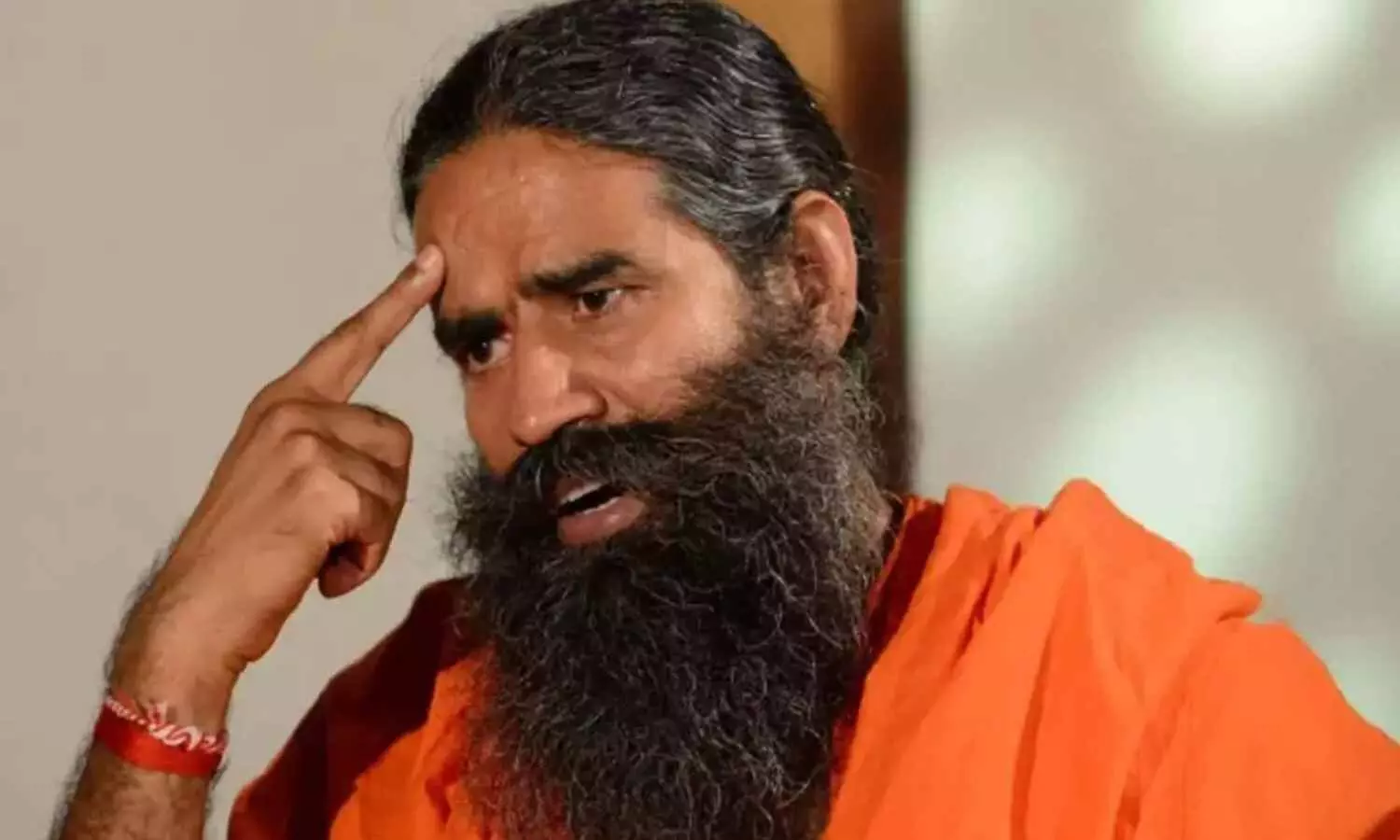
New Delhi: The Supreme Court on Friday postponed the hearing of a plea filed by Yoga guru Baba Ramdev to combine FIRs filed against him in various states regarding his purported remarks on allopathy’s inability to cure COVID-19.
The court sought the status of criminal cases pending against him in Bihar and Chhattisgarh over his alleged remarks against the allopathic cure for COVID-19.
Justices MM Sundresh and SVN Bhatti allowed Bihar and Chhattisgarh two weeks to update the court on the status of the FIRs and any chargesheets filed. They instructed Ramdev’s counsel to involve the complainants in the case and rescheduled the hearing for July, news agency ANI reported.
It also asked Ramdev’s counsel to implement the complainants in the case before the top court and posted the matter in July.
Also Read:Patanjali Ads Case: SC gives Ramdev, MD Balkrishna a week to issue public statement
Ramdev approached the top court seeking protection in criminal FIRs lodged against him in various states over his alleged remarks on efficacy of allopathy in the treatment of COVID-19 pandemic.
Ramdev seeks clubbing of FIRs and transfer of cases to Delhi lodged against him.
The plea of Ramdev also sought a stay on the proceedings in multiple cases lodged against him and had also sought protection from coercive actions in FIRs lodged by Indian Medical Associations (IMA) Patna and Raipur branches and transfer the FIRs to Delhi.
Medical Dialogues team had earlier reported that slamming Baba Ramdev for his derogatory statements against the modern medicine system and its doctors during the COVID-19 pandemic, the Supreme Court questioned him why the “Yoga Guru” must criticize other systems. Such observations came from the bench while it was considering a plea made by the Indian Medical Association (IMA), which sought to control the derogatory statements and “smear campaign” by the Yoga Guru against the vaccination drive and modern medicines.
Ramdev has been booked under Sections 188 (disobedience to order duly promulgated by public servant), 269 (negligent act likely to spread infection of disease dangerous to life), 504 (intentional insult with intent to provoke breach of the peace) and other provisions of Disaster Management Act, 2005.
According to an ANI report, In a video, Ramdev in 2021 was allegedly heard saying, “Allopathy is a stupid science and medicines such as Remdesivir, Fabiflu, and other drugs approved by the Drugs Controller General of India have failed to treat COVID-19 patients.”
His controversial remarks criticizing certain COVID-19 medications sparked outrage and led to legal action by the IMA.
Police in Chhattisgarh’s Raipur had registered an FIR based on a complaint filed by the Raipur’s IMA unit against Ramdev for allegedly spreading “false” information about the medicines being used by the medical fraternity for the treatment of COVID-19.
As per the complaint, Ramdev has been allegedly propagating false information and his threatening statements on social media against medicines being used by the medical fraternity, Government of India, Indian Council of Medical Research (ICMR) and other frontline organisations in treatment of COVID-19 infection.
The complaint said there are several videos of Ramdev on social media in which he had allegedly made such misleading remarks.
Powered by WPeMatico
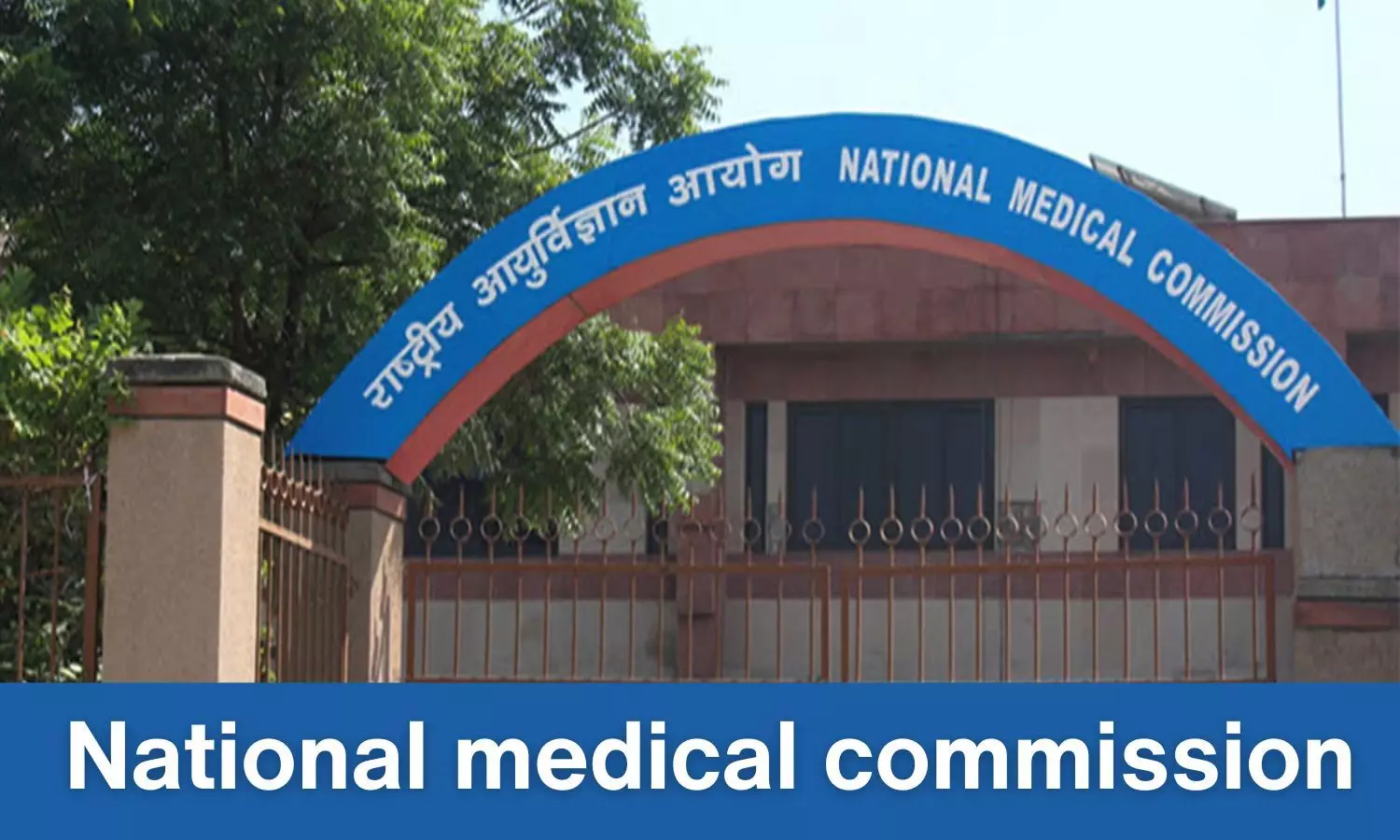
New Delhi: The Undergraduate Medical Education Board (UGMEB) of the National Medical Commission (NMC) has once again extended the deadline for the medical colleges to submit the Annual Declaration details/data. Issuing directions to the medical colleges to submit the required data by the new deadline i.e. 25th April 2024, the Apex Medical Commission has warned the medical colleges that the Commission shall not grant permission for MBBS admission if the institutes fail to submit the Annual Declaration Form.
Medical Dialogues had earlier reported that NMC for the first time had notified about the importance of the Annual Declaration Form through its notice dated 18.03.2024. Issuing the notice last month, the Commission had warned that no seat would be permitted if any medical college failed to submit the annual declaration within the deadline.
“All Medical Colleges/Institutes having valid Letter of Permission (LoP) for MBBS admission are hereby directed to fill the details/data of respective Institutions on NMC portal for annual declaration as required in the NMC Act, 2019 and various regulations issued by NMC from time to time. Submission of duly completed Annual Declaration Form of each College on NMC Portal is mandatory for annual renewal of permission of UG-MBBS seats. No seat shall be permitted in case the College/Institution fails to submit the Annual Declaration within the specified time period,” the Apex Medical Commission had stated in the notice.
Also Read: NMC extends deadline for submission of annual declaration by medical colleges, details
Later, through a notice dated 27.03.2024, NMC extended the deadline for submission of the Annual Declaration Form till 10th April 2024. The Deadline was once again extended through the notice dated 10.04.2024. Back then, NMC extended the deadline till 18th April, 2024.
The Commission has again extended the deadline for the medical colleges to comply with the directions. Issuing a notice dated 19.04.2024, “Reference is invited to Public Notice of even number dated 10 th April, 2024 in regard to uploading the Annual Declaration details/data of respective Institutions on NMC portal as required in the NMC Act, 2019 and various regulations issued by NMC from time to time, it has come to the notice that some Colleges are yet to upload the details on the Portal.”
“The permission for admission in MBBS Course for this Academic Year i.e. 2024-25 shall not be granted in case the Colleges/Institutions fail to submit the Annual Declaration Form,” NMC warned.
Notifying the new deadline, NMC added in the notice, “The last date for submission of Annual Declaration Form on the Portal is extended to 25th April, 2024.”
To view the NMC notice, click on the link below:
https://medicaldialogues.in/pdf_upload/ugmeb-annual-declaration-236534.pdf
Also Read: No annual declaration, No MBBS Permission: NMC warns medical colleges
Powered by WPeMatico
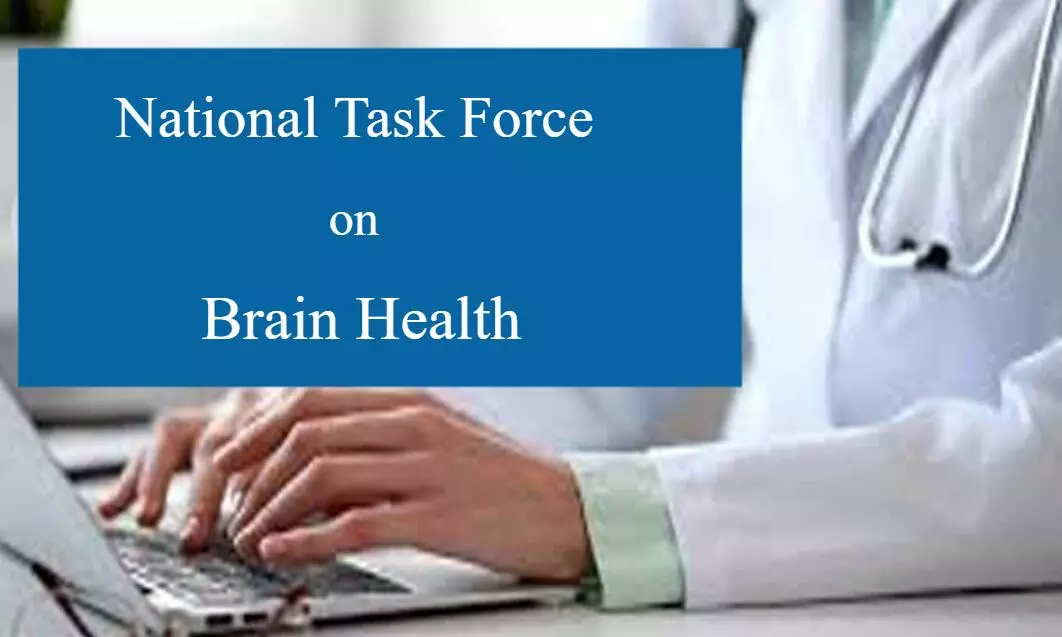
New Delhi: The government has taken a significant step towards prioritizing brain health by establishing the National Task Force on Brain Health. This initiative is being led by Dr Rajinder K Dhamija, Director of the Institute of Human Behavior and Allied Sciences (IHBAS).
The creation of the task force marks a substantial move towards placing brain health at the forefront of the national healthcare agenda.
NITI Aayog’s Health & Family Welfare Division has recently released an office memorandum for the constitution of the “National Task Force on Brain Health” for strengthening Brain Healthcare and services in India. The memo mentioned that Brain Health is an emerging and growing concept encompassing preventive, promotive and rehabilitative domains to provide and ensure Brain Health for all as part of universal health coverage and to accomplish SDGs. The Task Force has been instructed to submit its report by the 15th of July 2024.
The memo stated, “A pragmatic approach for effective strategies on surveillance, prevention, acute care and rehabilitation are needed urgently to provide easily accessible services for promotion, protection and recovery of Neurological Health and Care in India. Accordingly, it has been proposed to constitute a “National Task Force on Brain Health” with technical experts in the field of neurological care and science, and concerned ministries to review the gaps in-depth and make recommendations.”
“Disorders of the nervous system are the leading cause of disability-adjusted life years (DALYs) and the second leading cause of death globally, accounting for 9 million deaths per year. In the past three decades, most studies in India have shown a high disease burden for specific diseases including stroke, epilepsy, headache, Parkinson’s disease, and dementia, mostly reported for the urban Indian population. Despite progress in improving access to national health care, disparities persist based on socioeconomic status, age, geography, and gender”, the memo added.
The task force will recommend pathways to improve accessibility and quality of Brain health at primary, secondary and tertiary health care levels and it will also come up with specific action to be taken for strengthening and creating a robust, structured system to provide effective, timely diagnosis, treatment and care to patients with Neurological disorders.
The task force will be responsible for formulating strategies for promoting, managing, and preventing Neurological Disorders in Ayushman Aarogya Mandirs. It will also recommend ways to create systems for supportive rehabilitation infrastructure, equipped to provide services and interventions aimed at enhancing overall well-being and functioning for individuals living with Neurological conditions.
Dr Dhamija’s leadership is expected to guide the task force in its efforts to address various brain health concerns, including mental health disorders, neurological diseases, and overall cognitive well-being. The task force includes well-qualified members like Ms Indrani Kaushal, Economic Adviser, MoHFW, Ms Radhika Chakravarthy B, Joint Secretary (Social Defence), Prevention of Drug Abuse, PMU, MoSJE, Shri Rajesh Yadav, Joint Secretary, DePwD, MoSJE, Dr Suvarna Alladi, NIMHANS, Dr Manjari Tripathi, HOD, Neurology, AIIMS, Dr Veena Kalra, Ex-Professor & Head Paediatrics, AIIMS, Dr Ravinder Singh, Neuro-rehabilitation Scientist, ICMR, and Shri Rajib Kumar Sen, Senior Adviser, NITI Aayog.
Also Read: Mindfulness and meditation: inward attention as tool for mental health
Powered by WPeMatico
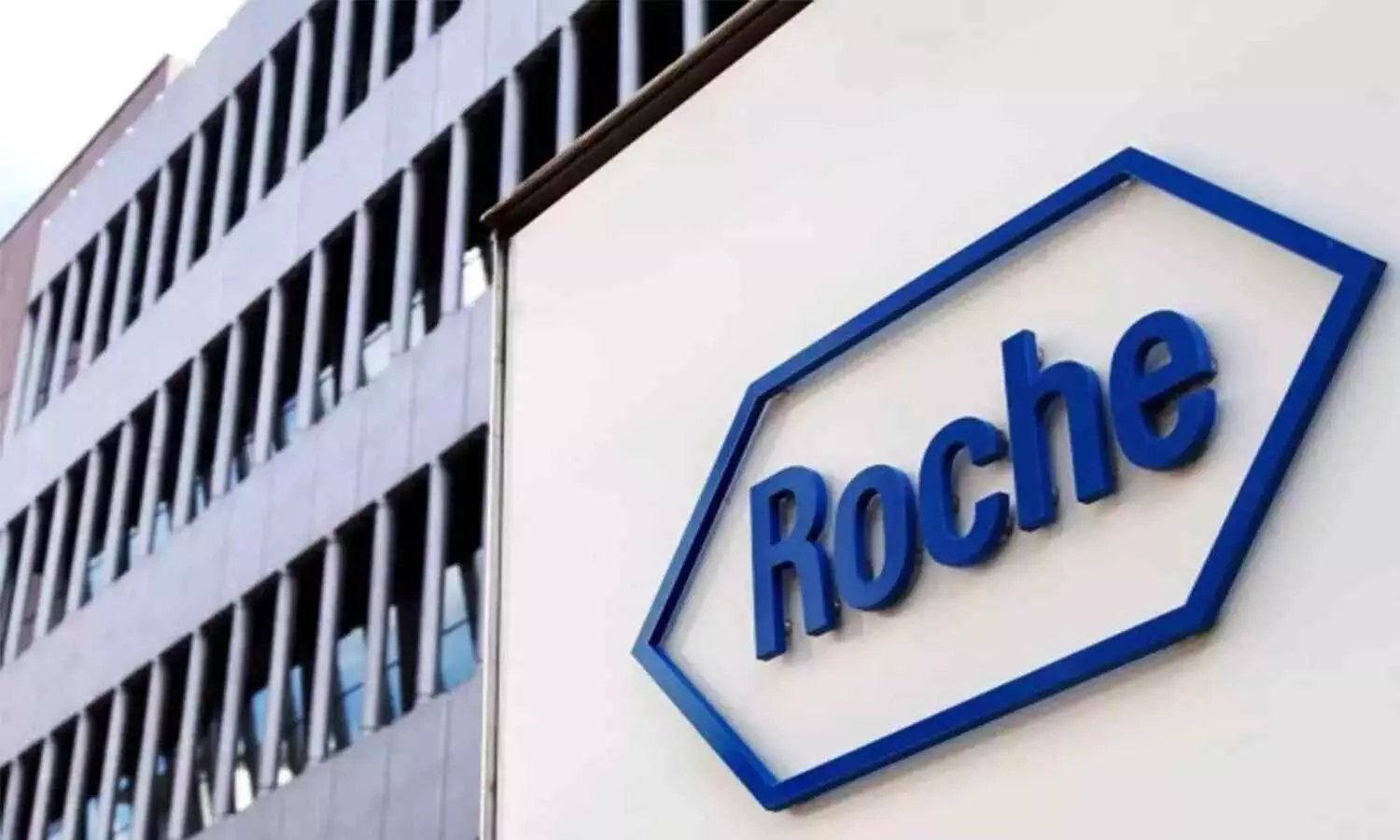
Basel: Roche has announced that the U.S. Food and Drug Administration (FDA) has approved Alecensa (alectinib) for adjuvant treatment following tumour resection for patients with anaplastic lymphoma kinase (ALK)-positive non-small cell lung cancer (NSCLC) (tumours ≥ 4 cm or node positive), as detected by an FDA-approved test.
“Alecensa is now the first and only ALK inhibitor approved for people with ALK-positive early-stage NSCLC who have undergone surgery to remove their tumour,” the Company stated.
“With an unprecedented 76% reduction in the risk of disease recurrence or death versus chemotherapy, Alecensa significantly improves upon the standard of care for people with early-stage ALK-positive lung cancer,” said Levi Garraway, M.D., Ph.D., Roche’s Chief Medical Officer and Head of Global Product Development. “At Roche, our goal is to give patients the best chance of cure by bringing effective, targeted treatments to early-stage disease before their cancer has spread. This approval brings us one step closer to achieving that mission.”
“The approval of Alecensa marks a pivotal moment for people newly diagnosed with early-stage ALK-positive lung cancer, who until now, were not able to receive ALK-specific therapy,” said Ken Culver, Director of Research and Clinical Affairs at ALK Positive, Inc. “These patients, who are typically diagnosed at a younger age, often face recurrence and have a higher risk of developing brain metastases than those with other types of NSCLC. Now, with this significant advance, it is more important than ever that all people diagnosed with early-stage lung cancer undergo testing for ALK and other recommended biomarkers to receive the treatment most appropriate for them.”
The approval is based on positive results from the Phase III ALINA study that demonstrated Alecensa reduced the risk of disease recurrence or death by 76% (hazard ratio [HR]=0.24, 95% CI: 0.13-0.43, p<0.001) compared with platinum-based chemotherapy in people with completely resected IB (tumour ≥ 4 cm) to IIIA (UICC/AJCC 7th edition) ALK-positive NSCLC. In an exploratory analysis, an improvement of central nervous system (CNS) disease-free survival was observed (HR=0.22; 95% CI: 0.08-0.58). The safety and tolerability of Alecensa in this trial were generally consistent with previous trials in the metastatic setting and no unexpected safety findings were observed. These data were presented as a late-breaking oral at the European Society of Medical Oncology Congress 2023 Presidential Symposium in October 2023 and were also recently published in the New England Journal of Medicine in April 2024.
Alecensa is a kinase inhibitor currently approved as first- and second-line treatment for ALK-positive metastatic NSCLC. It has demonstrated significant efficacy in patients, including those with CNS metastases, and now with this approval, these benefits could extend to people with early-stage disease. Routine testing of resected surgical tissue or biopsy for ALK, EGFR and PD-L1 biomarkers in patients with stage IB to IIIA and select IIIB (UICC/AJCC 8th edition) NSCLC, in addition to in the advanced setting, is recommended by international guidelines, including the National Comprehensive Cancer Network (NCCN) Clinical Practice Guidelines in Oncology (NCCN Guidelines), to support clinicians’ decision-making. About 5% of people with NSCLC are ALK-positive, equating to approximately 90,000 people worldwide diagnosed each year.
The review of this application was conducted under the FDA’s Project Orbis initiative, which provides a framework for concurrent submission and review of oncology medicines among international partners. According to the FDA, collaboration among international regulators may allow patients with cancer to receive earlier access to products in other countries where there may be significant delays in regulatory submissions. For this review, FDA collaborated with the Australian Therapeutics Goods Administration (TGA), Health Canada (HC), Israel’s Ministry of Health (IMoH) Pharmaceutical Administration, Switzerland’s Swissmedic, and the United Kingdom’s Medicines and Healthcare Products Regulatory Agency (UK MHRA). Brazil’s National Health Surveillance Agency (ANVISA) and Singapore’s Health Sciences Authority (HSA) will also be participating as Type C Project Orbis Partners.
Additionally, the FDA reviewed and approved the supplemental application under its Real-Time Oncology Review pilot programme. Data from the Phase III ALINA study will also be used for filing submissions to additional global health authorities, including the European Medicines Agency.
Lung cancer is one of the leading causes of cancer death globally. Each year 1.8 million people die as a result of the disease; this translates into more than 4,900 deaths worldwide every day. Lung cancer can be broadly divided into two major types: non-small cell lung cancer (NSCLC) and small-cell lung cancer. NSCLC is the most prevalent type, accounting for around 85% of all cases. Today, about half of all people with early lung cancer (45-76%, depending on disease stage) still experience a cancer recurrence following surgery, despite adjuvant chemotherapy. Treating lung cancer early, before it has spread, may help prevent the disease from returning and provide people with the best opportunity for a cure.
Powered by WPeMatico
